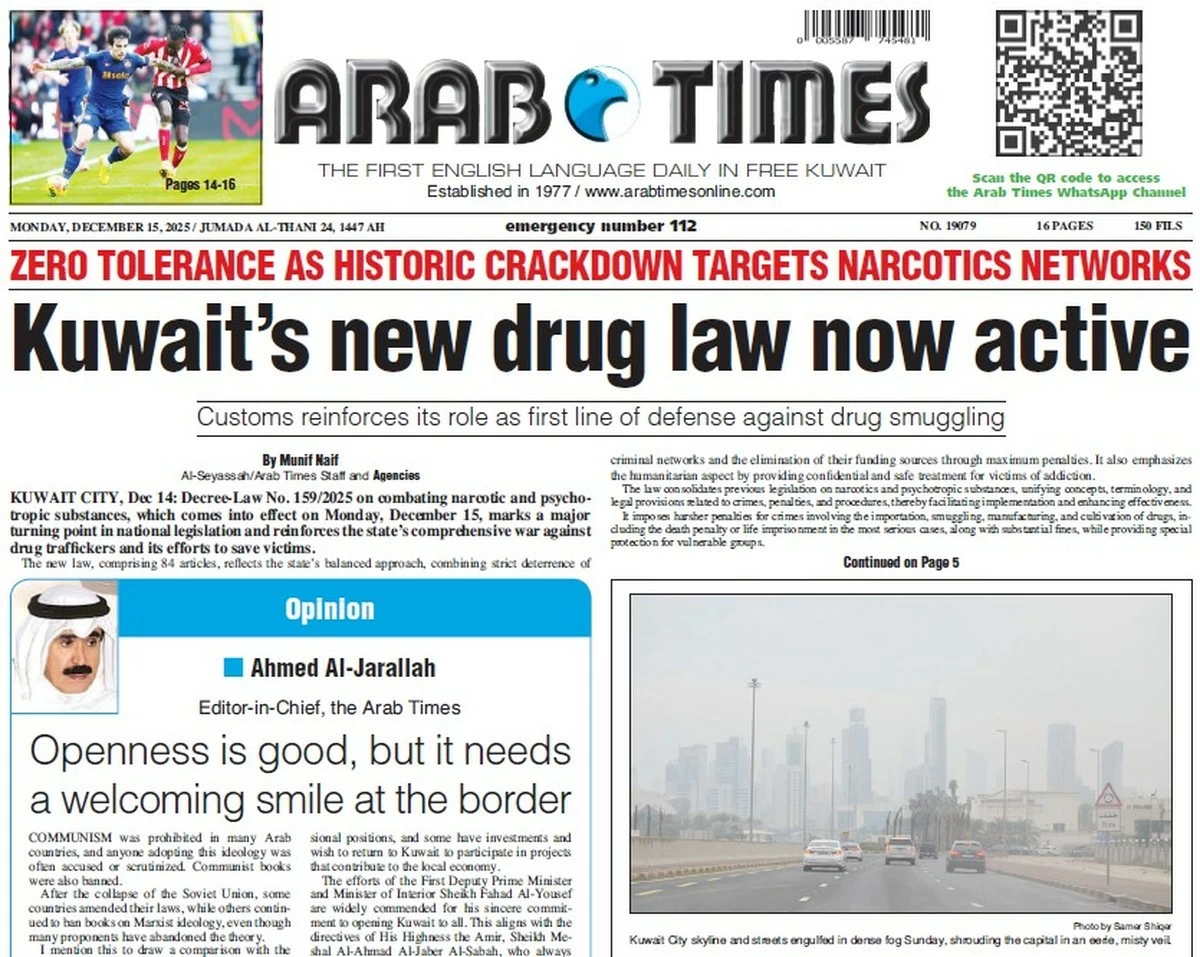25/01/2025
25/01/2025
GIVEN the sensitivity of the situation, we must speak clearly. This message is directed to the new Lebanese political leadership, which must be aware not only of the regional changes but also the internal challenges facing Lebanon and the world.
The Lebanese political leadership must understand that the current opportunity for progress will not remain open indefinitely. As it waits for political settlements, Lebanon must learn from the past three decades of turmoil, which have left the country devastated on many fronts.
Lebanese officials must first realize that Lebanon is no longer the sole tourist destination for Gulf Cooperation Council citizens. In addition to Lebanon’s picturesque landscapes, towering mountains, and tourist hotspots, countries like Saudi Arabia and Oman have made great strides in opening up and establishing their own tourist and entertainment facilities. Over the past three decades following the collapse of the Soviet Union, Gulf citizens have discovered many alternative tourist destinations that offer quality services at lower costs than Beirut.
Therefore, betting on this aspect will not serve their interests, and this must be taken into consideration, especially after the last thirty years when Hezbollah ruled Lebanon and caused it to be transformed from a beautiful, thriving country that was known for its literature, art, and beauty into a haven for terrorists and a drug production hub.
The group carried out many operations and crimes targeting both Lebanese citizens and Gulf countries. As a result, Gulf countries have grown wary of investing in or traveling to Lebanon. Also, Gulf countries have imposed strict conditions on Lebanese citizens who wish to visit our countries.
This shift has undoubtedly contributed to the lack of foreign currency entering Lebanon. Rather than appreciating the historical relationship between the GCC countries and Lebanon, the country’s leadership began harming Gulf citizens, particularly during the Lebanese banking crisis when deposits from individuals and Gulf governments were confiscated and still remain unpaid. Meanwhile, Hezbollah’s illegal banking entity, Al-Qard Al-Hassan, has only deepened its influence and control over the Lebanese economy in line with Iranian interests.
That is why the speech delivered by Gulf foreign ministers for the new era was clear: “If you do not help yourselves, no one will help you.”
Anyone who believes that time will solve the problem of forming a government is mistaken. The current opportunity will not repeat itself. Therefore, as the popular saying goes, the Lebanese “must pull out their thorns with their own hands.” There will be no reconstruction or return of Lebanon to the Arab and international fold as long as there is a group that uses its weapons to strengthen itself against other political forces and Arab countries.
The major regional changes, especially the dramatic changes in Syria and the weakening of Hezbollah, as well as the defeat suffered by Hamas in Gaza and other events in recent months, should push the Lebanese political leadership to act wisely, particularly when it comes to forming a government with major tasks ahead.
From this perspective, when the defeated group sets conditions on the majority of the Lebanese, such as monopolizing the position of Minister of Finance or other positions based on partisan quotas, it is not working to facilitate the new era. On the contrary, Hezbollah is actively obstructing progress, as it has done since 1992 when it first gained power and established a system governed by “three heads” or “the triad”, as referred to by the Lebanese, relying on possessing excessive power through the use of weapons. Hezbollah has repeatedly proven that its weapons are used not for the defense of Lebanon, but for the destruction of the country.
Perhaps some may view this as interference in Lebanon’s internal affairs. However, it is clear to all that the Gulf states’ concerns about Lebanon are driven first by their deep love for the country, and second, by the understanding that the stability of any Arab country contributes to the stability of the entire region. It is time for Lebanon to find peace after half a century of suffering, especially as we are just three months away from the 50th anniversary of the Lebanese civil war.
These facts must be at the forefront of the minds of Lebanese leaders, particularly as the world seeks rational solutions. The U.S. President Donald Trump has been clear in his intention to end wars, especially in the Middle East. This does not, however, mean allowing Iran to act unchecked. Let us not forget that Tehran has experience with this man.
Therefore, moving away from the quota system in Lebanon has become a necessity. For 32 years, this system failed to solve any problems, and it instead only deepened the destruction, and allowed one party to act according to Iranian interests rather than the will of the Lebanese people.
This is the reality that should be in the minds of President Joseph Aoun and Prime Minister-designate Nawaf Salam. We say this as advice, and not as interference in Lebanon’s affairs.



